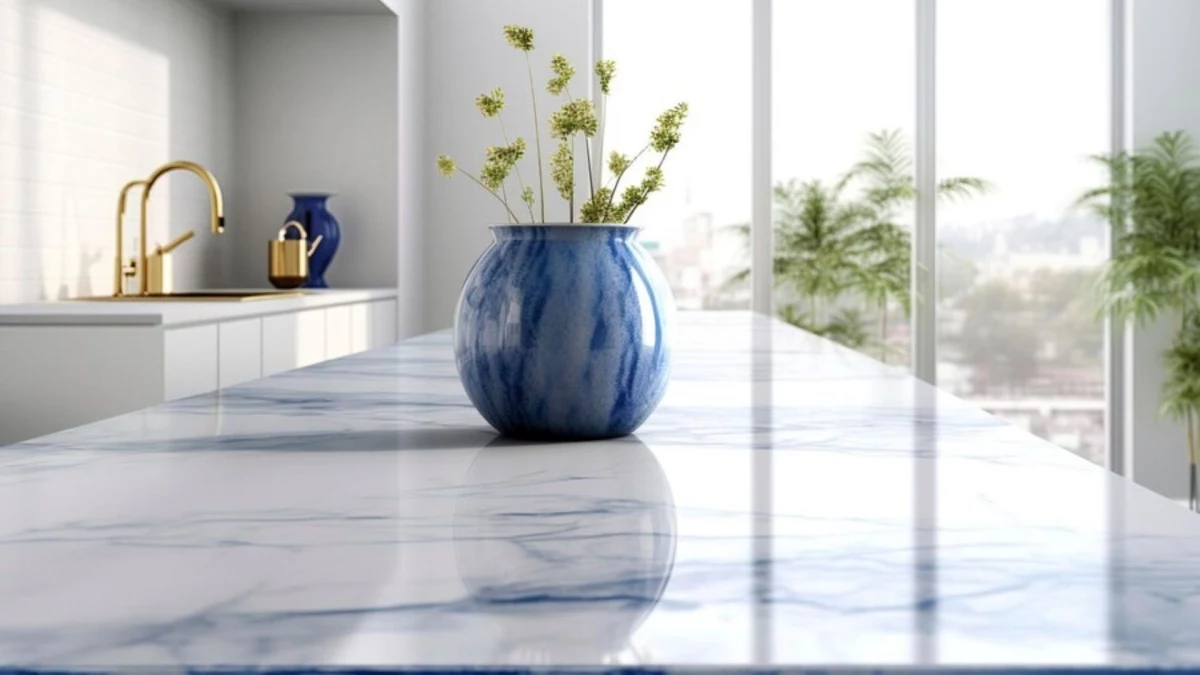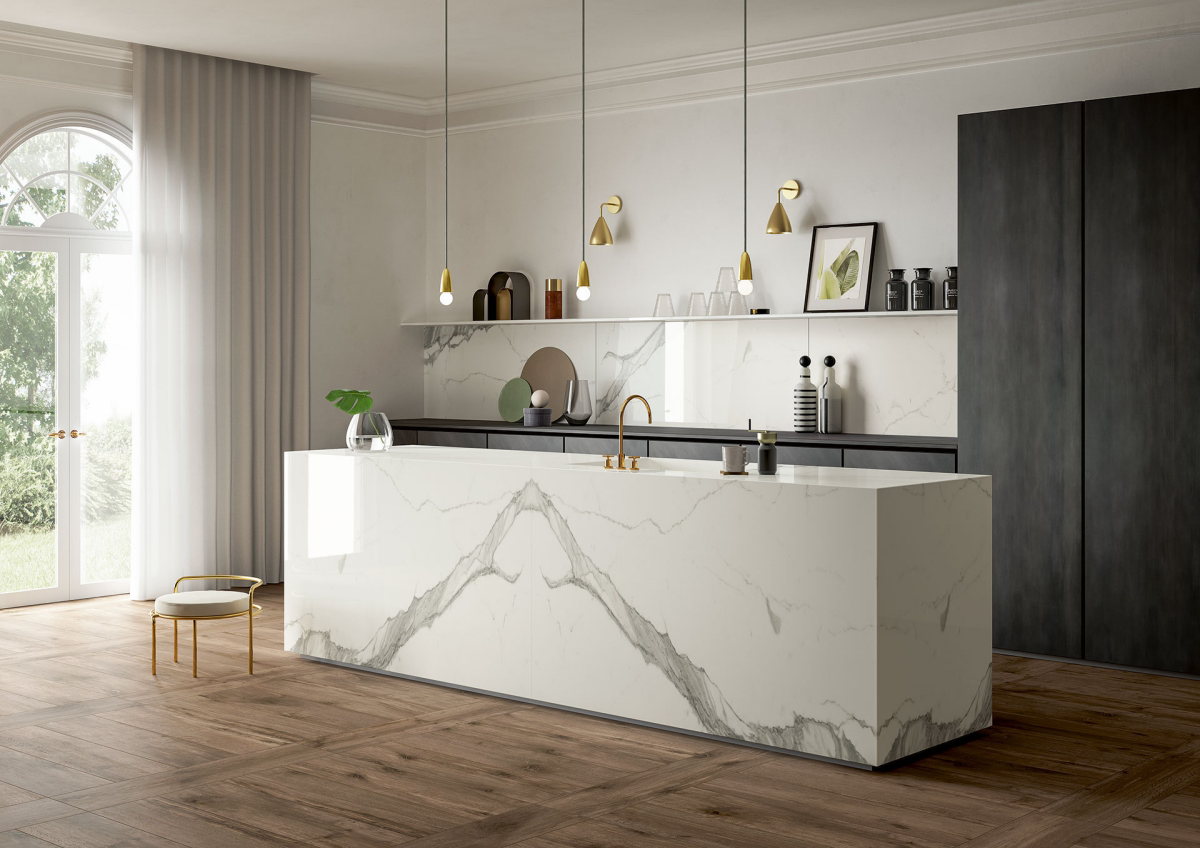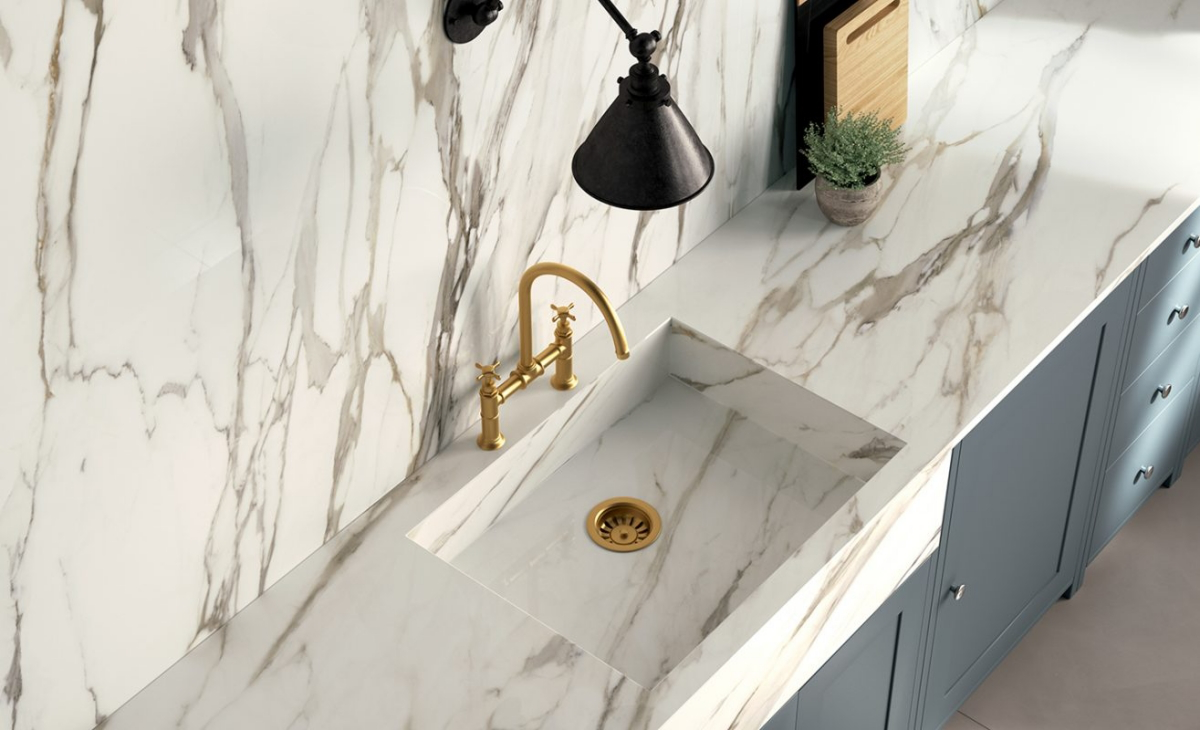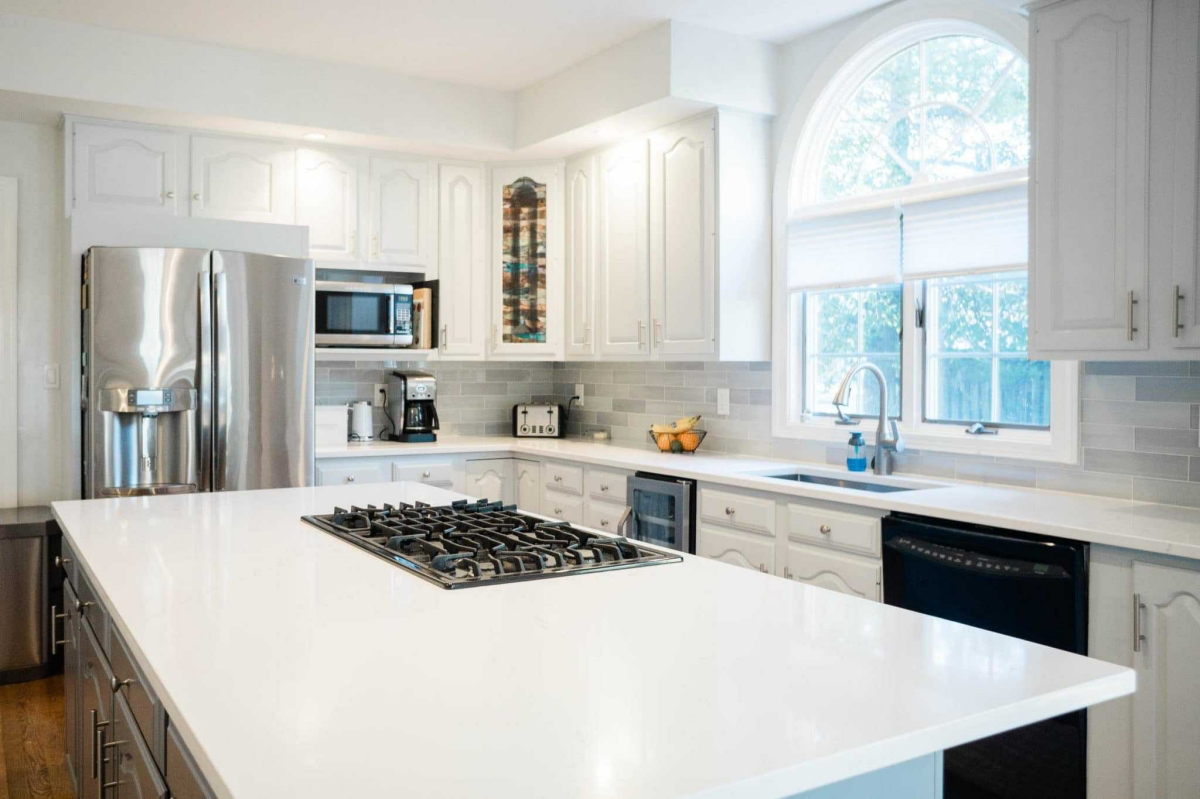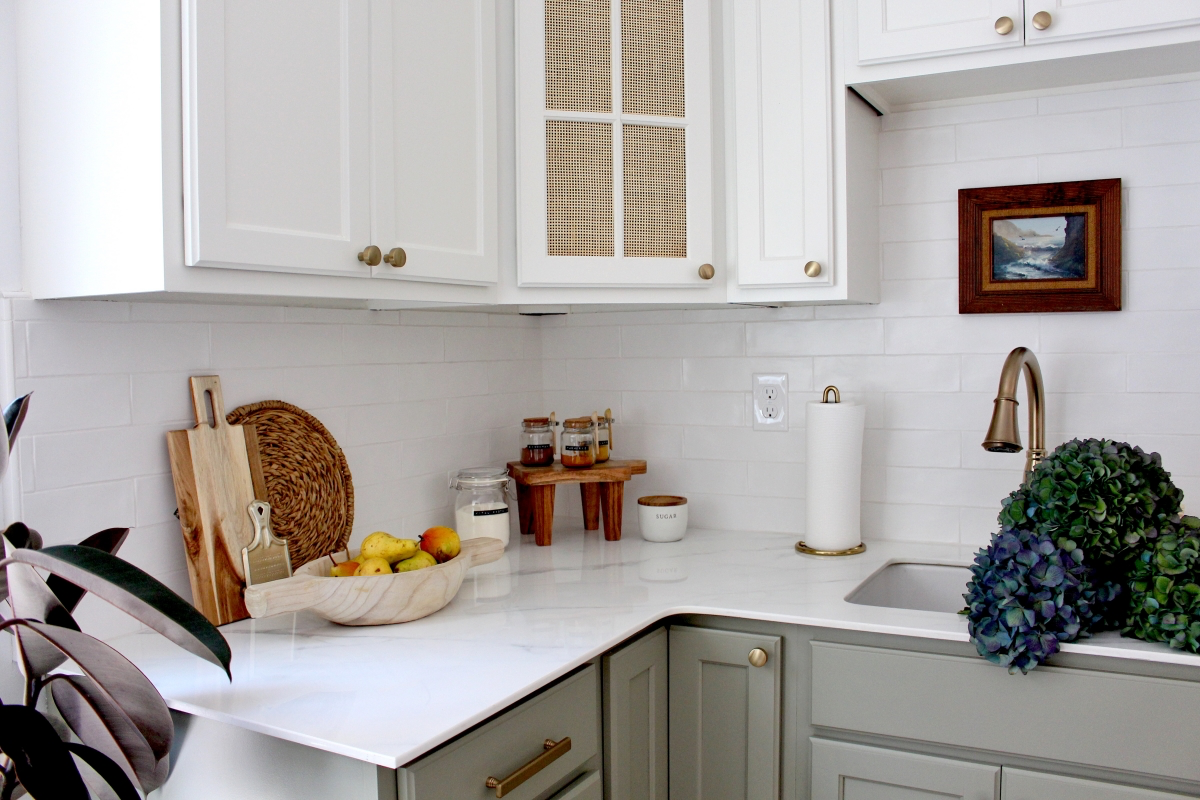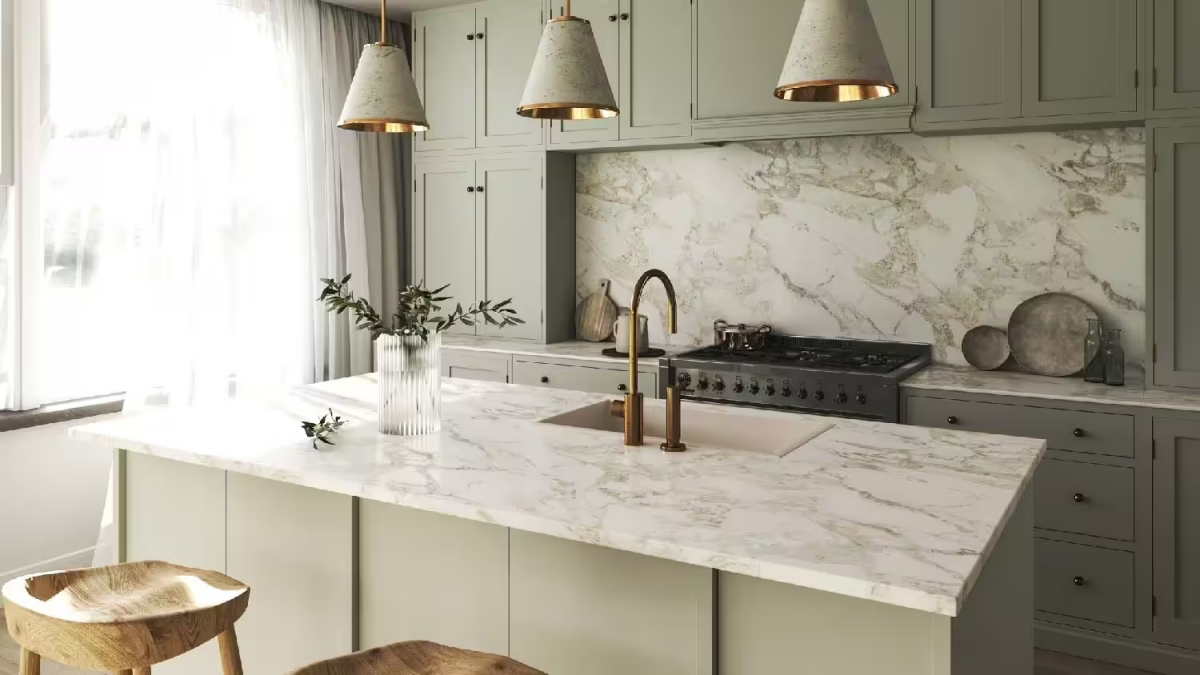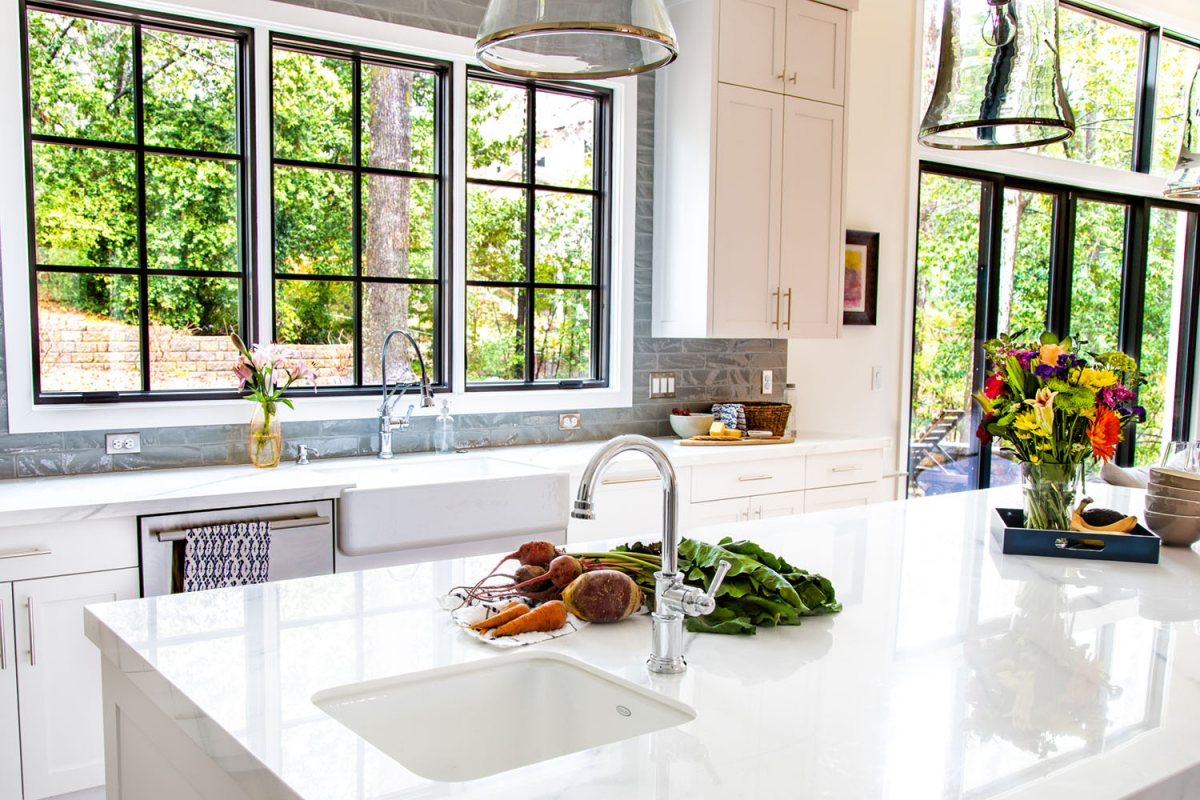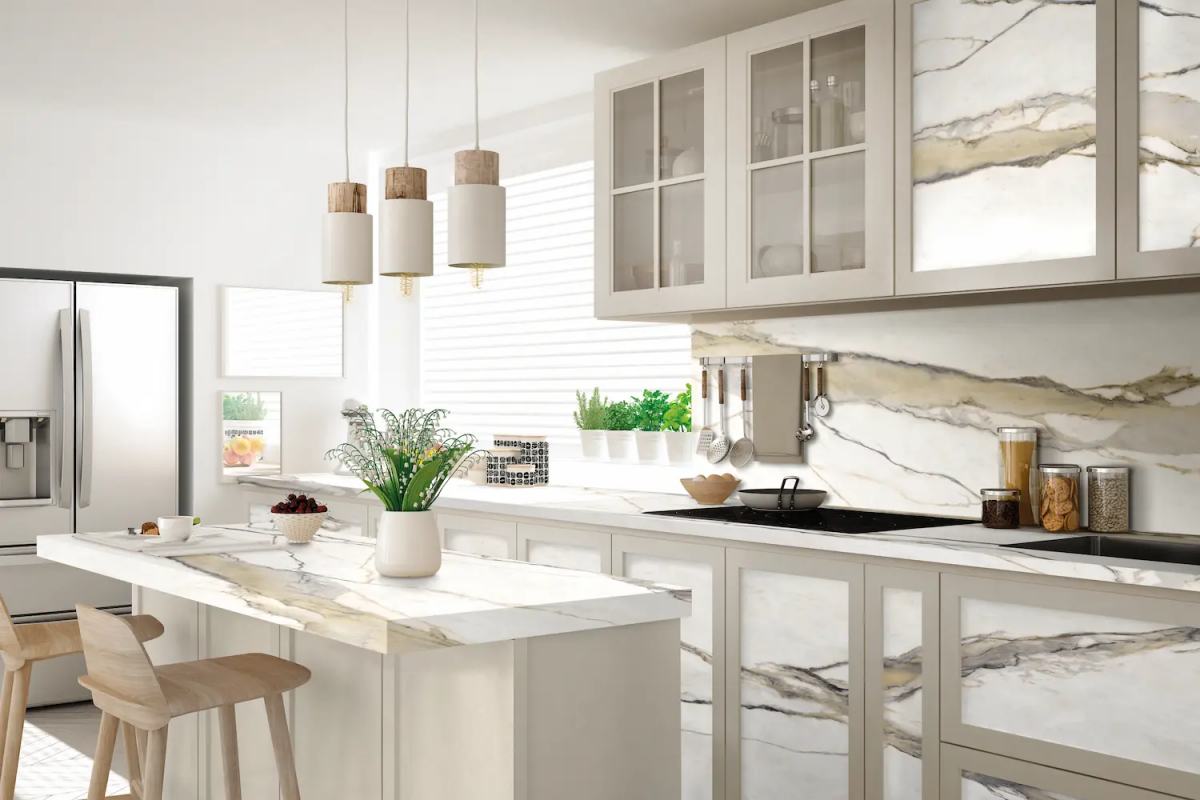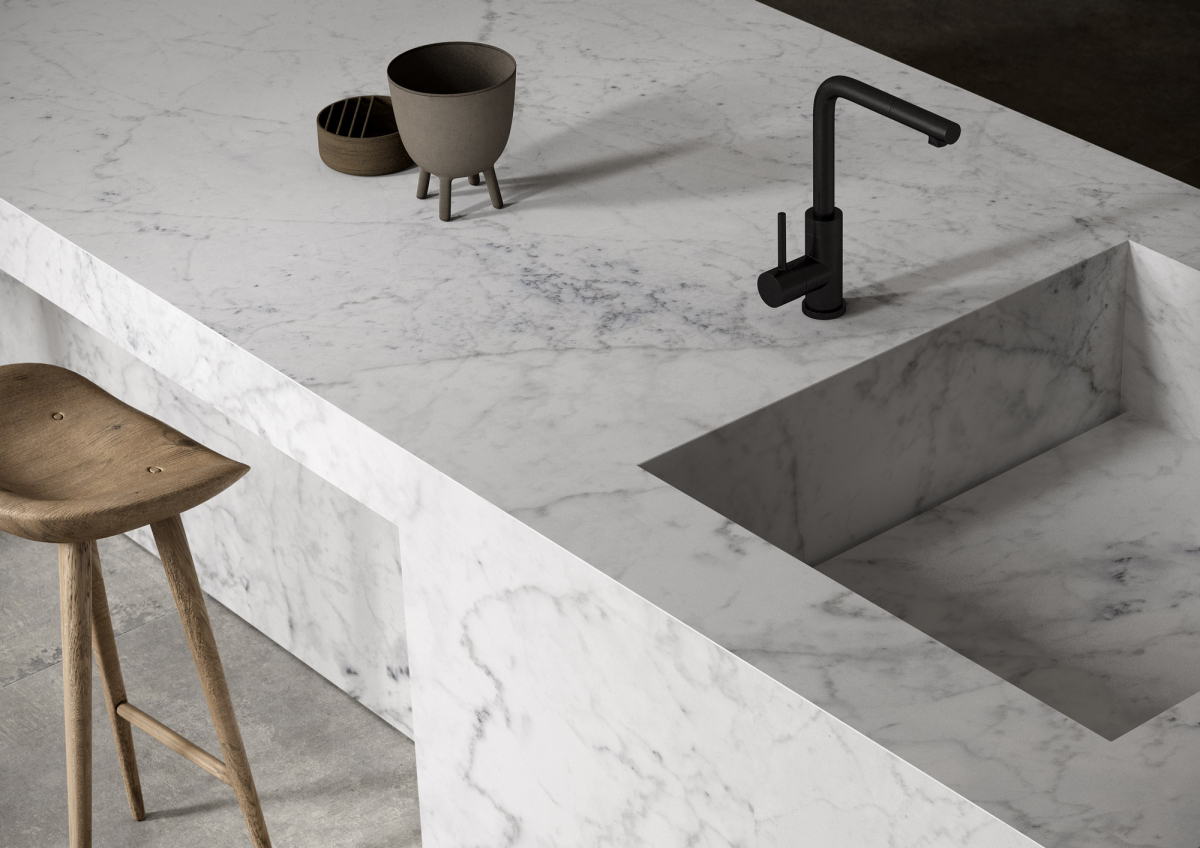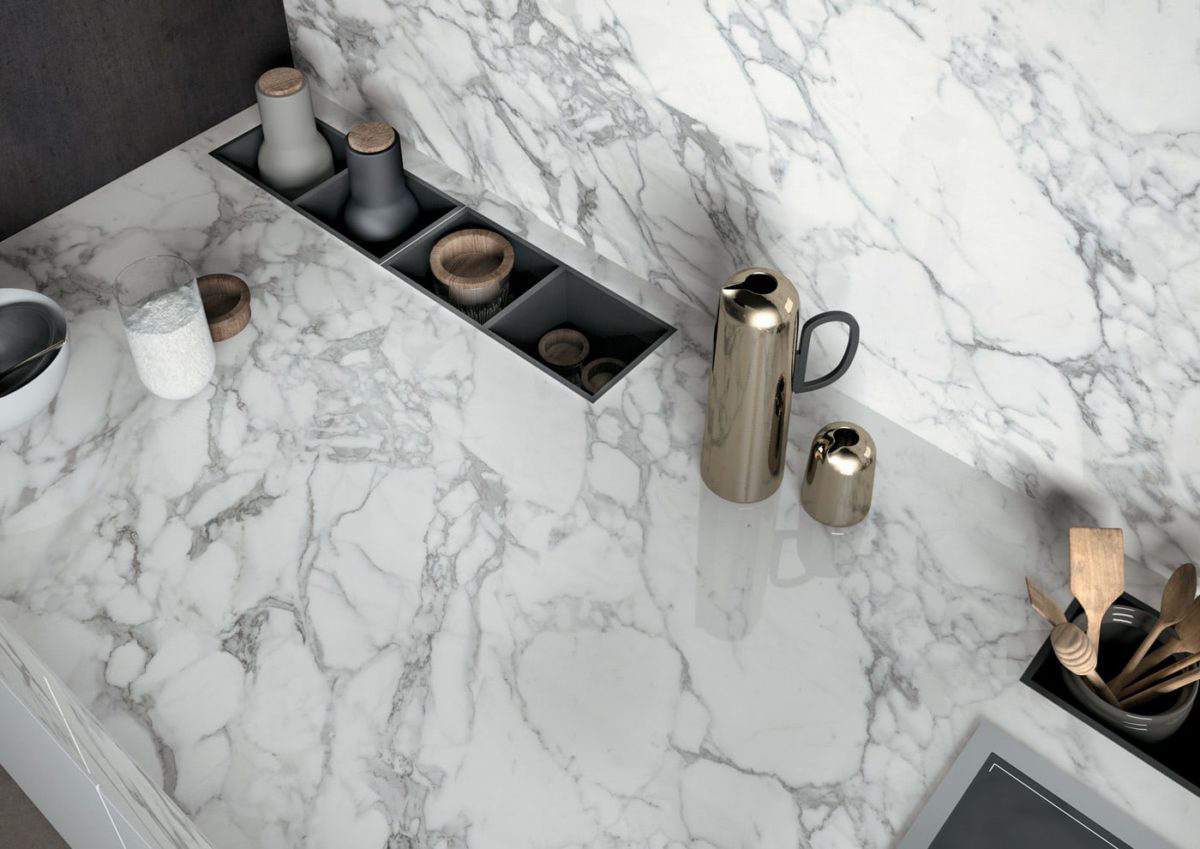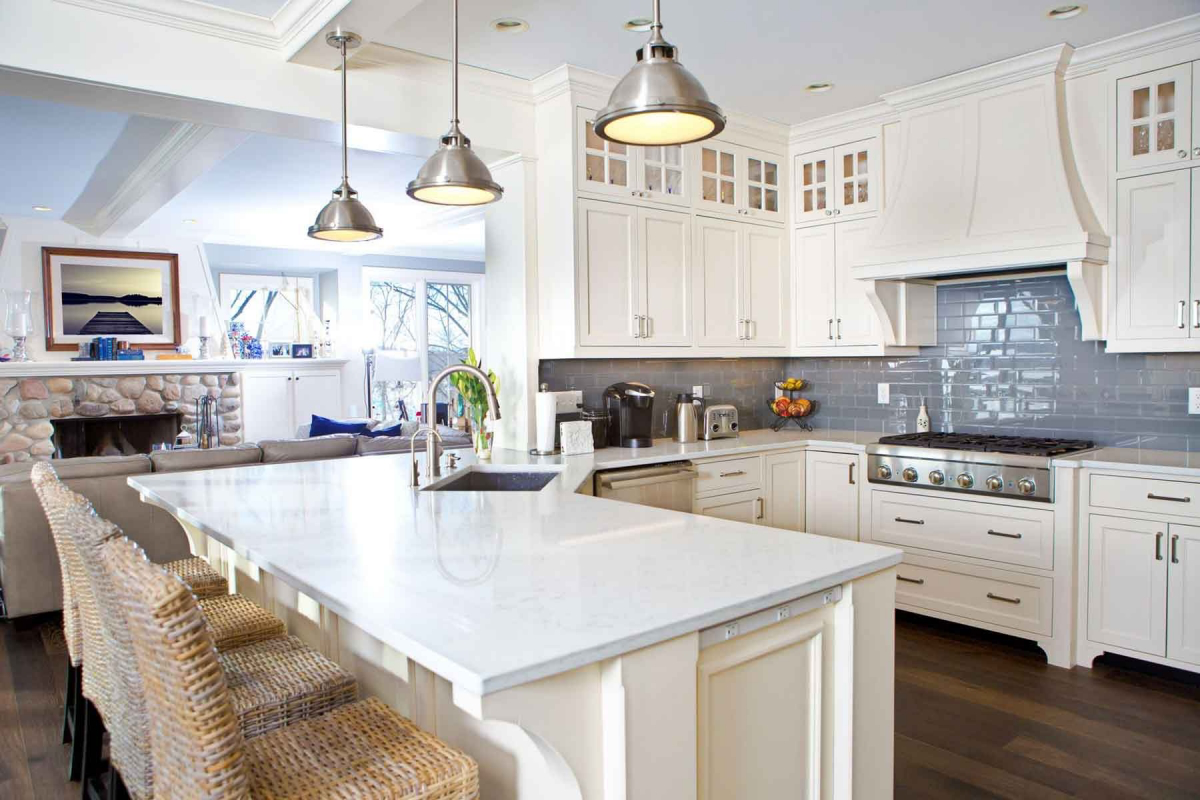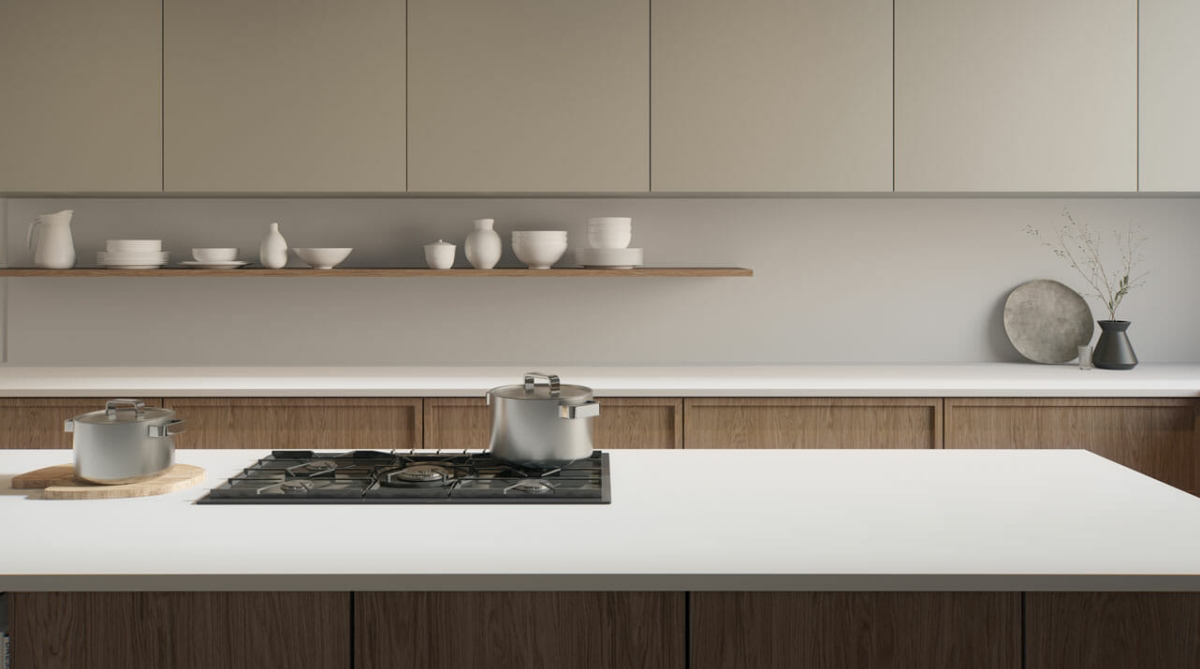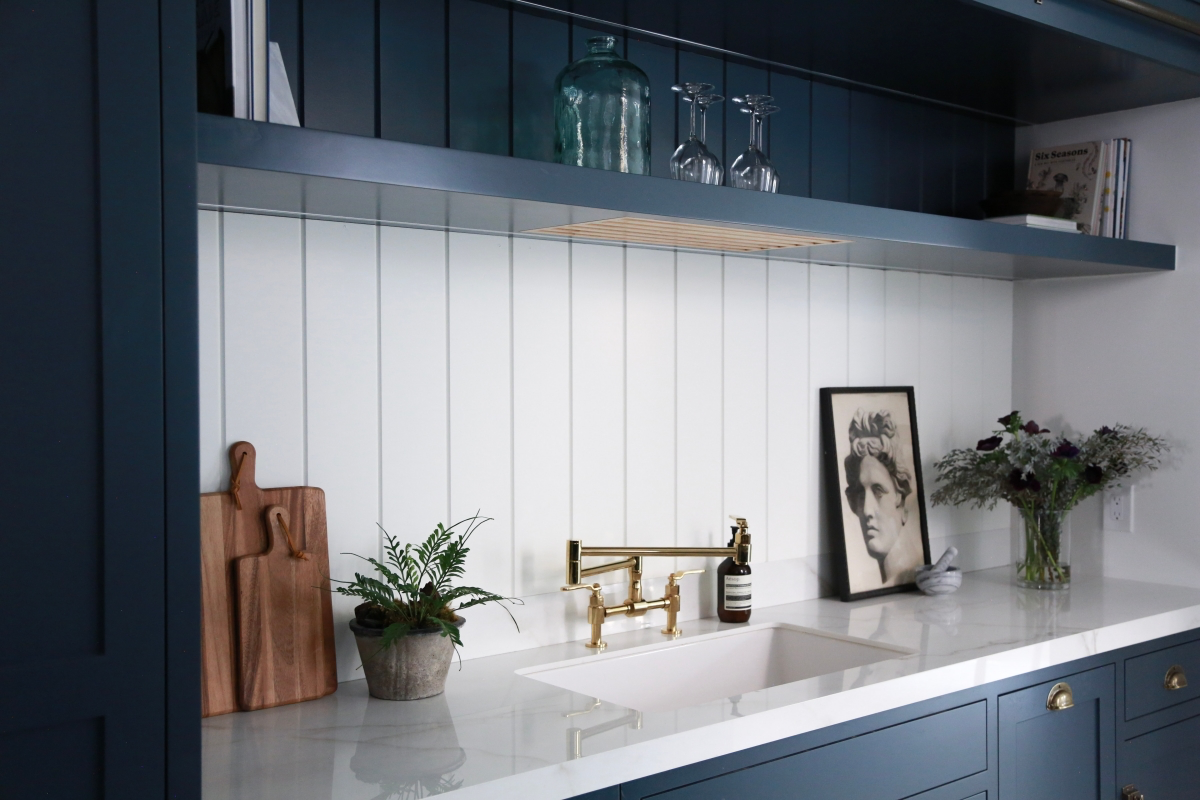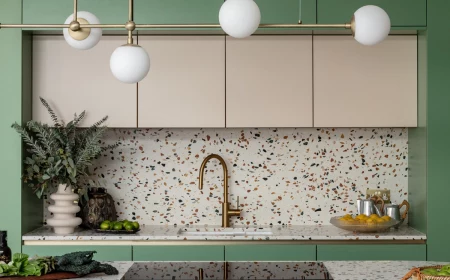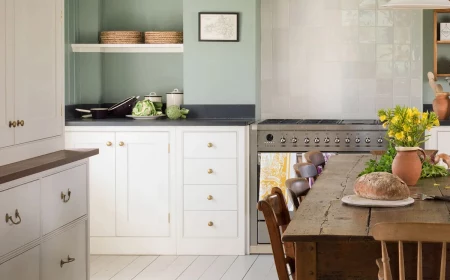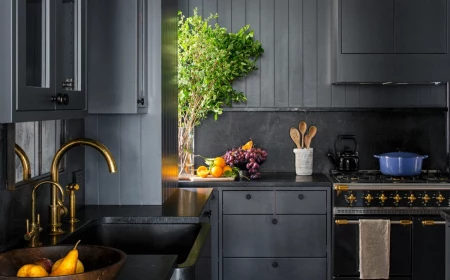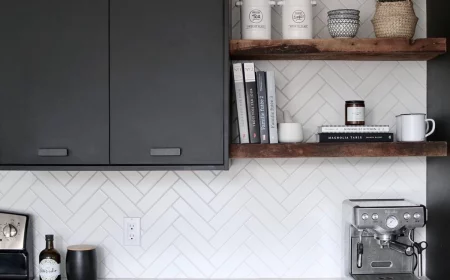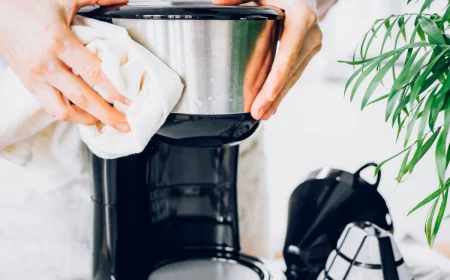Porcelain Countertops 101: Pros, Cons, Cost, Types, Cleaning
In the world of interior design and home improvement, countertops hold a special place. They not only serve as functional surfaces but also contribute significantly to the overall aesthetics of your space. If you’re considering a countertop upgrade or embarking on a new project, porcelain countertops might just be the exquisite choice you’ve been searching for. In this comprehensive guide, we’ll delve into the world of porcelain countertops, exploring their types, costs, benefits, and essential maintenance tips. Join us on this journey of discovery and learn why porcelain countertops are capturing the hearts of homeowners and designers alike.
Discover the world of porcelain countertops in our comprehensive guide
In this article
- What Are Porcelain Countertops?
- What Are the Types of Porcelain Countertops?
- How Much Do Porcelain Countertops Usually Cost?
- Who Should Get Porcelain Countertops?
- Who Should Avoid Porcelain Countertops and Why?
- Advantages of Porcelain Countertops
- Disadvantages of Porcelain Countertops
- How Long Do Porcelain Countertops Last?
- How to Clean Porcelain Countertops
- How to Maintain Porcelain Countertops
- Conclusion
- More Articles You Might Like
What Are Porcelain Countertops?
Porcelain countertops, often referred to as porcelain slabs or porcelain tile countertops, are a testament to the marriage of beauty and functionality. Crafted from high-quality, natural materials such as clay, feldspar, and silica, porcelain countertops undergo a meticulous manufacturing process that involves high-temperature firing.
Porcelain countertops are crafted from high-quality, natural materials such as clay, feldspar, and silica
The result? A durable, non-porous surface that boasts remarkable resistance to stains, scratches, heat, and UV rays. Porcelain countertops are designed to not only elevate the aesthetics of your kitchen or bathroom, but also to withstand the rigors of daily life with grace and style.
They have remarkable resistance to stains, scratches, heat, and UV rays
What Are the Types of Porcelain Countertops?
Porcelain countertops offer a diverse range of options to suit your unique style and preferences. From classic marble-inspired designs to bold, contemporary patterns, there’s a porcelain countertop for every taste. Some common types include:
- Natural Stone Look: Mimicking the elegance of natural stone, these porcelain countertops offer the timeless beauty of marble, granite, or limestone without the maintenance requirements.
- Solid Color: For a sleek, modern look, solid color porcelain countertops provide a clean and minimalistic appearance that complements various design styles.
- Concrete Look: Embrace the industrial-chic trend with concrete-look porcelain countertops, which bring a touch of urban sophistication to your space.
- Wood Look: Achieve the warmth and texture of wood without worrying about stains or water damage with wood-look porcelain countertops.
Solid color porcelain countertops provide a clean and minimalistic appearance
How Much Do Porcelain Countertops Usually Cost?
Porcelain countertops, while known for their elegance and durability, come at a range of price points. Factors that influence the cost include the type of porcelain, the complexity of installation, and the size of the project. On average, you can expect to invest anywhere from $60 to $120 per square foot for high-quality porcelain countertops. While this cost may seem higher than some alternatives, it’s essential to consider the long-term benefits and beauty that porcelain brings to your space. Plus, the durability of porcelain ensures that your investment will withstand the test of time.
You can expect to invest anywhere from $60 to $120 per square foot for high-quality porcelain countertops
Who Should Get Porcelain Countertops?
Porcelain countertops, with their unparalleled blend of timeless elegance and practical functionality, cater to a diverse range of individuals and lifestyles. They are particularly well-suited for:
- Busy Families: The daily chaos of a bustling household is no match for porcelain countertops. Their remarkable resistance to stains, scratches, and heat ensures that your kitchen remains both a functional workspace and a welcoming gathering spot for the family. Whether it’s spilled juice, accidental knife slips, or hot pots and pans, porcelain countertops can handle it all with grace.
- Design Enthusiasts: If you possess an appreciation for the natural beauty of materials like stone, wood, or concrete but are deterred by their maintenance requirements, porcelain countertops are your ideal solution. These countertops offer a versatile canvas to bring your design visions to life. Whether you seek the sophistication of marble, the warmth of wood, or the industrial charm of concrete, porcelain can effortlessly emulate your desired aesthetic.
- Health-Conscious Individuals: Porcelain’s non-porous surface is a boon for health-conscious individuals, especially in areas like kitchens and bathrooms. Unlike porous materials that can harbor bacteria, allergens, and stains, porcelain remains impeccably hygienic. It provides peace of mind, knowing that your food preparation surfaces are resistant to microbial growth and easy to clean.
These countertops offer a versatile canvas to bring your design visions to life
Who Should Avoid Porcelain Countertops and Why?
While porcelain countertops offer a multitude of advantages, there are instances where they may not be the most suitable choice. It’s essential to consider your specific circumstances, preferences, and budget when deciding whether porcelain countertops align with your needs.
- Budget-Conscious Shoppers: It’s no secret that porcelain countertops can be positioned on the higher end of the price spectrum. While they undoubtedly offer exceptional value for their durability and aesthetics, they may not fit within all budget constraints. If you’re working with a limited budget for your countertop project, exploring more budget-friendly alternatives could be a practical choice.
- DIY Enthusiasts: Porcelain countertop installation is a task that often necessitates professional expertise. The precise fitting, handling of heavy slabs, and ensuring a flawless finish are aspects where experience matters. Attempting a DIY installation without the requisite skills can lead to costly mistakes and a suboptimal outcome. Therefore, DIY enthusiasts should carefully weigh their capabilities before embarking on a porcelain countertop project.
- Rapid Temperature Changes: Porcelain, like most materials, responds to temperature fluctuations by expanding and contracting. In regions where extreme temperature variations are frequent, such as going from hot to cold quickly, it’s crucial to take precautions. Sudden shifts in temperature can potentially lead to cracks or damage. Therefore, in such environments, considering alternative countertop materials that are less sensitive to temperature changes might be a more prudent choice.
Porcelain countertops can be positioned on the higher end of the price spectrum
Advantages of Porcelain Countertops
Porcelain countertops reign supreme in the world of kitchen and bathroom surfaces, offering a plethora of advantages that make them an exceptional choice for homeowners and designers alike. These advantages include:
- Durability: Porcelain countertops are built to withstand the tests of time. Their robust nature makes them highly resistant to stains, scratches, and heat. This durability ensures that your countertop retains its pristine appearance even in the face of daily wear and tear. It’s a resilient surface that can handle the demands of a bustling kitchen or a frequently used bathroom without losing its charm.
- Non-Porous: One of the standout features of porcelain is its non-porous surface. This means that liquids, whether it’s spilled wine, tomato sauce, or coffee, won’t penetrate the material and cause unsightly stains. The non-porous nature also works as a shield against bacteria, making porcelain countertops exceptionally hygienic and easy to clean. A simple wipe with a damp cloth or a mild cleaning solution is all it takes to maintain their impeccable appearance.
- Versatility: Porcelain countertops come in a wide range of designs, patterns, and colors. Whether you’re aiming for a classic, traditional kitchen, a sleek modern bathroom, or something in between, there’s a porcelain countertop style that perfectly complements your interior design vision. Its versatility knows no bounds, making it a versatile canvas for your creative aspirations.
- Low Maintenance: Porcelain countertops are champions of low maintenance. Unlike some other countertop materials that require regular sealing or specialized care, porcelain countertops need minimal attention. Routine cleaning with a gentle cleanser or warm, soapy water keeps them looking their best. This ease of maintenance means you can enjoy the beauty of porcelain countertops without the hassle of extensive upkeep.
Porcelain countertops are built to withstand the tests of time
Disadvantages of Porcelain Countertops
While porcelain countertops come packed with advantages, it’s crucial to consider potential drawbacks to make an informed choice:
- Cost: The exceptional qualities of porcelain come at a price. High-quality porcelain countertops can be more expensive compared to some other countertop materials. If you’re working within a tight budget, the initial cost of porcelain may be a limiting factor. However, it’s essential to view this cost as an investment in a countertop that will serve you well for years to come.
- Installation: The installation of porcelain countertops is not a DIY-friendly endeavor. Due to their weight and the need for precise fitting, professional installation is highly recommended. While this ensures a flawless finish, it also adds to the overall project cost. It’s essential to budget for both the countertop material and installation services when considering porcelain countertops.
- Brittleness: Despite their durability, porcelain countertops can be relatively brittle compared to some other countertop materials. Dropping heavy objects or applying excessive force in one area can lead to chipping or cracking. While this risk is relatively low in standard kitchen and bathroom use, it’s a factor to keep in mind, especially if you have a more active or accident-prone household.
The installation of porcelain countertops is not a DIY-friendly endeavor
How Long Do Porcelain Countertops Last?
Porcelain countertops are renowned for their longevity. When well-maintained, they can last for decades, with some homeowners enjoying their porcelain surfaces for over 20 years. Their resistance to wear and tear, stains, and heat ensures that your investment remains as stunning as the day it was installed. To maximize the lifespan of your porcelain countertops, it’s essential to follow proper maintenance guidelines and avoid heavy impacts.
When well-maintained, they can last for decades
How to Clean Porcelain Countertops
Cleaning your porcelain countertops is a simple and straightforward task, thanks to their non-porous nature. Follow these easy steps to keep your countertops looking immaculate:
- Regular Dusting: Start by removing loose debris and dust from the surface. A soft cloth or a dusting brush works wonders for this task. This quick step helps prevent scratches caused by abrasive particles.
- Gentle Cleaning Solution: Create a gentle cleaning solution by mixing warm water with a few drops of mild dish soap or a pH-neutral cleaner. It’s essential to avoid harsh chemicals and abrasive cleaners that can potentially damage the surface of your porcelain countertops.
- Soft Cloth or Sponge: Dip a soft cloth or sponge into the soapy water mixture. Make sure it’s thoroughly wrung out to avoid excess water on the countertops. Excess moisture can lead to water spots or streaks.
- Wipe Down the Countertops: Gently wipe down the countertops with the soapy cloth or sponge. Focus on any areas with visible stains or spills. The non-porous surface of porcelain countertops makes it easy to remove most stains without much effort.
- Rinse and Dry: Once you’ve cleaned the surface, rinse it thoroughly with clean water to remove any soap residue. Soap residue can dull the shine of your countertops over time, so this step is crucial. After rinsing, dry the surface with a clean, soft cloth to prevent water spots. A microfiber cloth is an excellent choice for achieving a streak-free finish.
It is essential to avoid harsh chemicals and abrasive cleaners
How to Maintain Porcelain Countertops
Maintaining the allure of your porcelain countertops is a straightforward process that requires minimal effort. Here are some essential tips to ensure your countertops remain in pristine condition:
- Use Cutting Boards: While porcelain is highly resistant to scratches, it’s a good practice to use cutting boards when preparing food. This extra layer of protection prevents potential damage to the surface from sharp knives and heavy chopping.
- Avoid Excessive Weight: As sturdy as porcelain countertops are, they can still chip or crack when subjected to excessive weight or force. Avoid dropping heavy objects onto the countertops, and be cautious when handling hard or sharp items near the edges.
- Trivets and Hot Pads: Protect your porcelain countertops from thermal shock by using trivets or hot pads under hot cookware. Sudden extreme temperature changes can lead to cracks in the material, so taking this precaution is essential.
- Regular Cleaning: As mentioned earlier, regular cleaning with a gentle, non-abrasive cleaner is the key to maintaining the shine and hygiene of your porcelain countertops. This simple step goes a long way in preserving the beauty and functionality of your countertops, ensuring they remain a focal point of your kitchen or bathroom for years to come.
Protect your porcelain countertops from thermal shock by using trivets or hot pads
Conclusion
Porcelain countertops stand as a testament to the perfect marriage of style and durability. With their remarkable resistance to stains, scratches, heat, and UV rays, they provide a long-lasting solution for homeowners and designers alike. While their initial cost may be higher than some alternatives, the enduring beauty and low maintenance requirements make them a valuable investment in the aesthetics and functionality of your space. Whether you’re a busy family, a design enthusiast, or health-conscious individual, porcelain countertops offer the timeless elegance and practicality that you deserve. So, why not consider embracing the beauty and durability of porcelain in your next home improvement project?
Now you know why porcelain countertops can be a great investment for your home!
